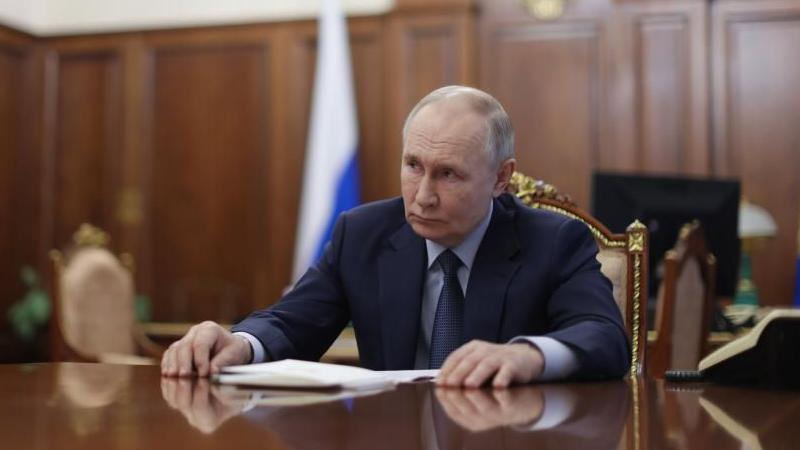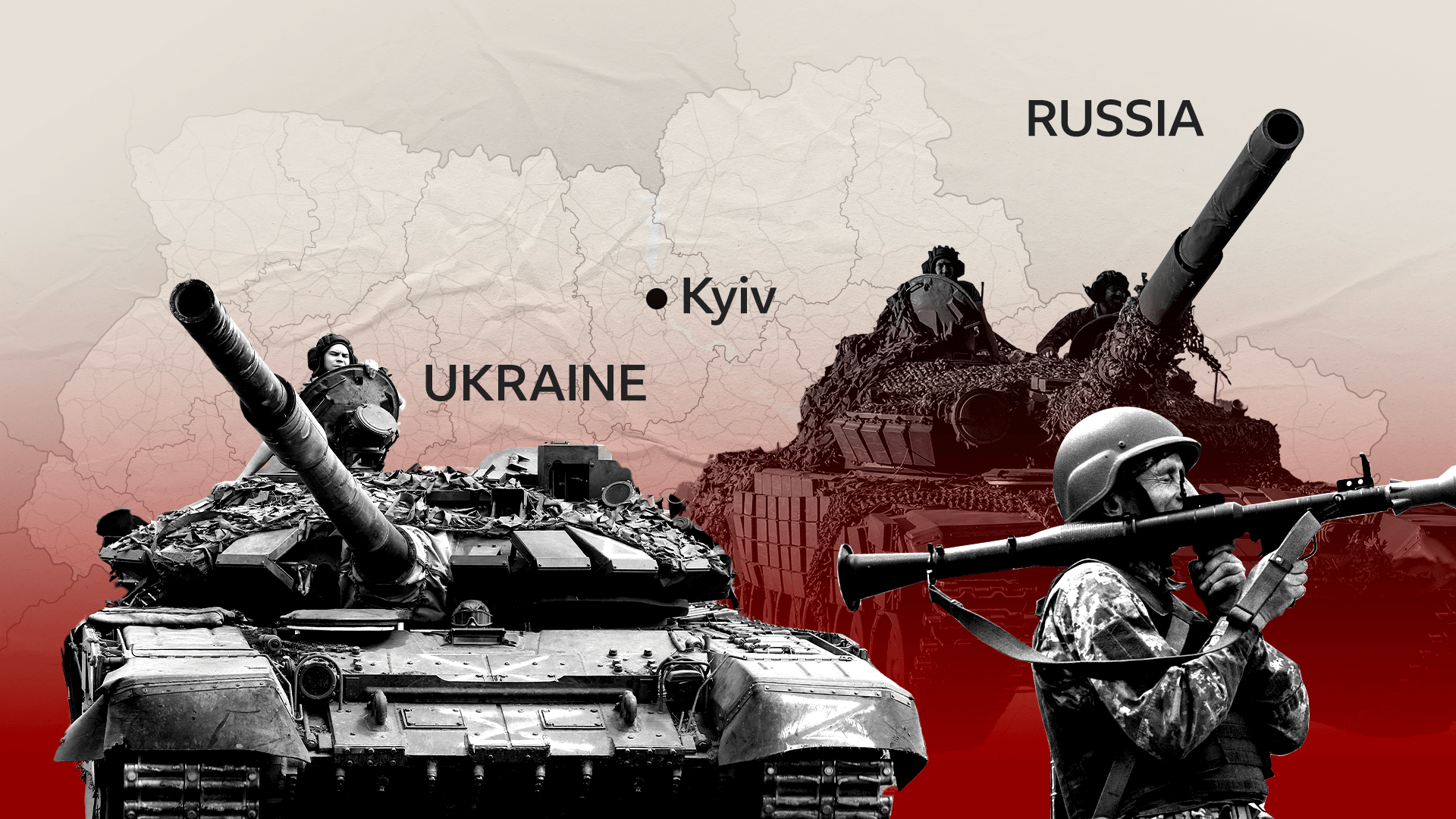Trump wants peace. Ukrainians fear what that might look like
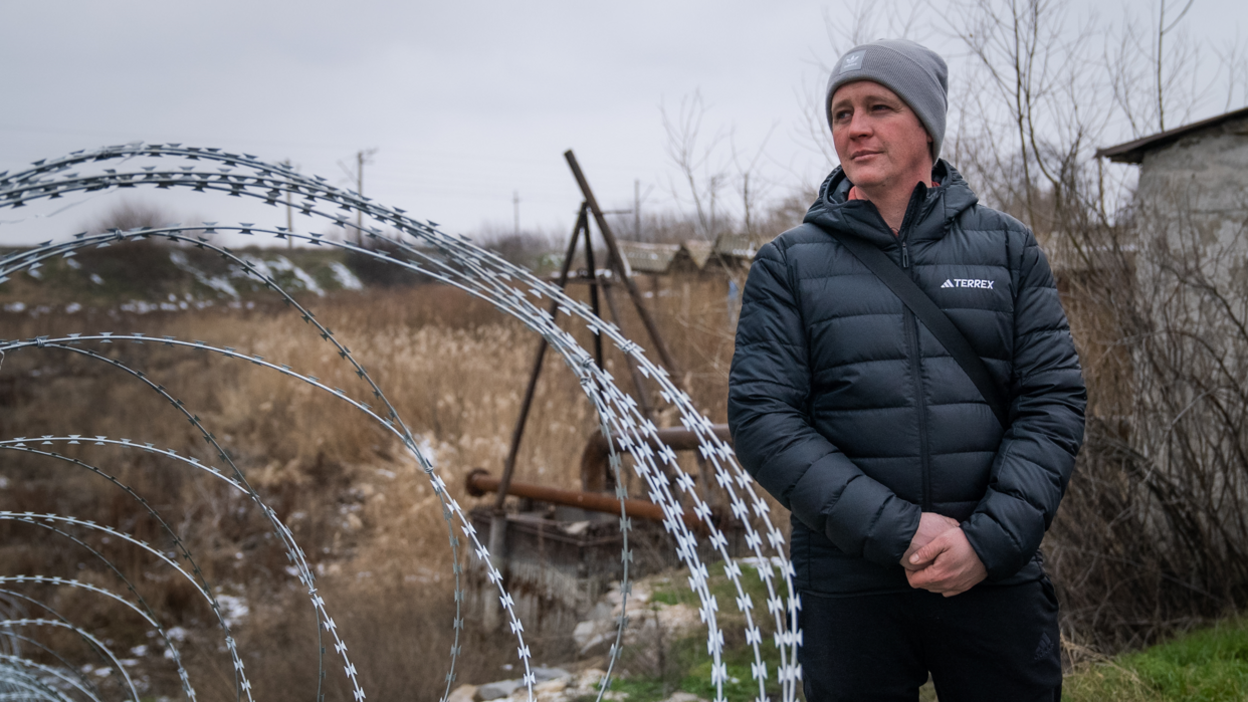
Oleksandr is out of work after the loss of his fishing business
- Published
"I have no plans for the future at all," says Oleksandr Bezhan, standing next to an empty, frozen paddock where he used to work as a fisherman on the bank of the Dnipro river in southern Ukraine. "If I wake up in the morning, that's already pretty good."
Malokaterynivka sits just 15km (9 miles) north of the front line in Ukraine's Zaporizhzhia region.
If US President Donald Trump succeeds in halting the war, Malokaterynivka is hoping to end up on the right side of that front line.
I last visited this area in 2023, when Ukraine launched a much-anticipated counter-offensive.
At the time, Ukrainians dared to dream of winning this war. They had, after all, won the battle of Kyiv and liberated swathes of territory elsewhere.
But 18 months on, thunder-like artillery exchanges reflect the failure of that operation, and Russia's dominance.
The front line here is broadly in the same place - but the broad expanse of river has gone.
When the Russian-occupied Kakhovka dam downstream was destroyed, this became a vast, uninterrupted expanse of scrubland.
The barren surroundings reflect the frozen limbo in which Ukraine finds itself. The White House wants to end the war, but it's not as simple as blowing a full-time whistle.
"If the front line becomes a border, it would be scary… fighting could break out at any moment," explains Oleksandr.
The exposed riverbed separates our location from Russian-occupied territory. Distant sunlight bounces off the metallic Zaporizhzhia nuclear power plant, in Moscow's grip since 2022.
Ukraine and the US both want peace, but that is where the consensus seems to end.
Washington's vision of it, along with battlefield realities, means Russia will probably keep hold of the Ukrainian land it's seized.
Ukraine wants meaningful security guarantees that would prevent invading forces from pushing across the river.
Instead, Trump has denied Kyiv's dream of joining the Nato alliance as he focuses on Russia.
Having watched and reported on Ukraine's fight for more than three years, it is an especially tough hand for the country to receive.
There are feelings of betrayal. Commentators criticise either Ukrainian President Zelensky or the new foreign policy of its biggest ally.
"The border wouldn't depend on us," says Oleksandr. "It probably won't work out, but Seoul is 30km from North Korea, and they somehow live and prosper."
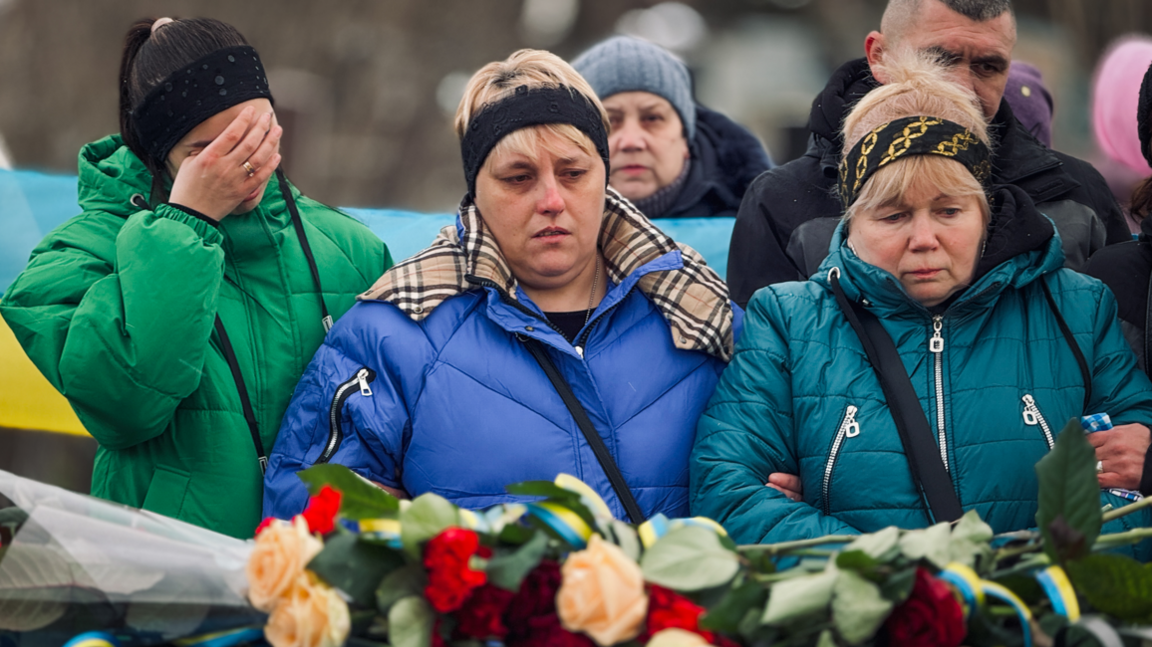
Natalya (centre) held a funeral for her husband recently, which had to be cut short due to the threat of artillery
Malokaterynivka's challenge of finding a new purpose lies at the heart of Ukraine's future.
And while politicians talk about talks, Ukrainians continue to fight and die.
Villagers gather for the funeral of a local soldier, also named Oleksandr. Half of the graves in the cemetery are freshly dug.
The ceremony cannot last more than 25 minutes because of the threat of artillery. Mourners flinch and duck for cover when his comrades fire off a gun salute.
"I don't have hope for a ceasefire," says his widow Natalya, who nevertheless wants to be proved wrong.
"They just keep sending more and more of our boys to the front. If only they could find some way to end it."
Alongside the river is a disused rail line surrounded by barbed wire.
"It's to stop Russian agents from sabotaging the track," explains Lyudmyla Volyk, who has lived in Malokaterynivka her whole life.
Trains used to run all the way to Crimea in the south.
"We hope that one day it will be restored," says the 65-year-old, optimistically. "And that one day we'll go to our Crimea."
The peninsula's 11 years of Russian occupation makes it hard to imagine.
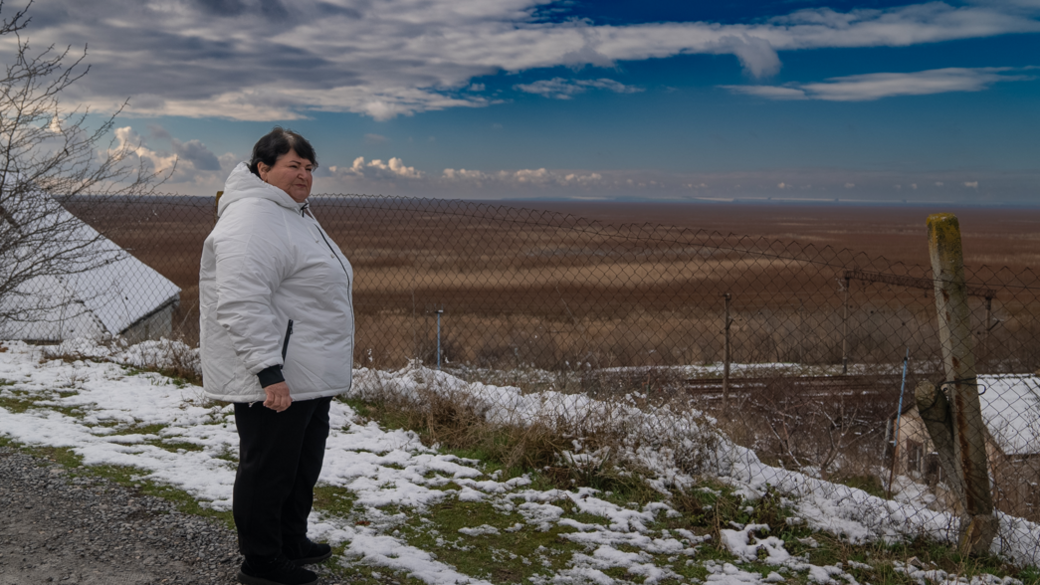
Lyudmyla looks out over the empty reservoir which has drained her town of life
President Zelensky insists he won't sign any agreement which doesn't include Ukraine, so does Lyudmyla trust him to get a deal which protects her?
"We want to believe," she replies after a deep breath.
If Trump does bring peace to Ukraine, it would be welcomed in many quarters.
The prospect of uninterrupted nights, sirens falling silent and soldiers returning home is yearned for.
But as things stand, any relief would quickly be swamped by the unanswered questions of how a ceasefire would hold and who would enforce it.
Kyiv will see this absence of detail as something still to play for. The problem for Ukraine, is that so will Russia.
Additional reporting by Svitlana Libet, Toby Luckhurst and Hanna Chornous
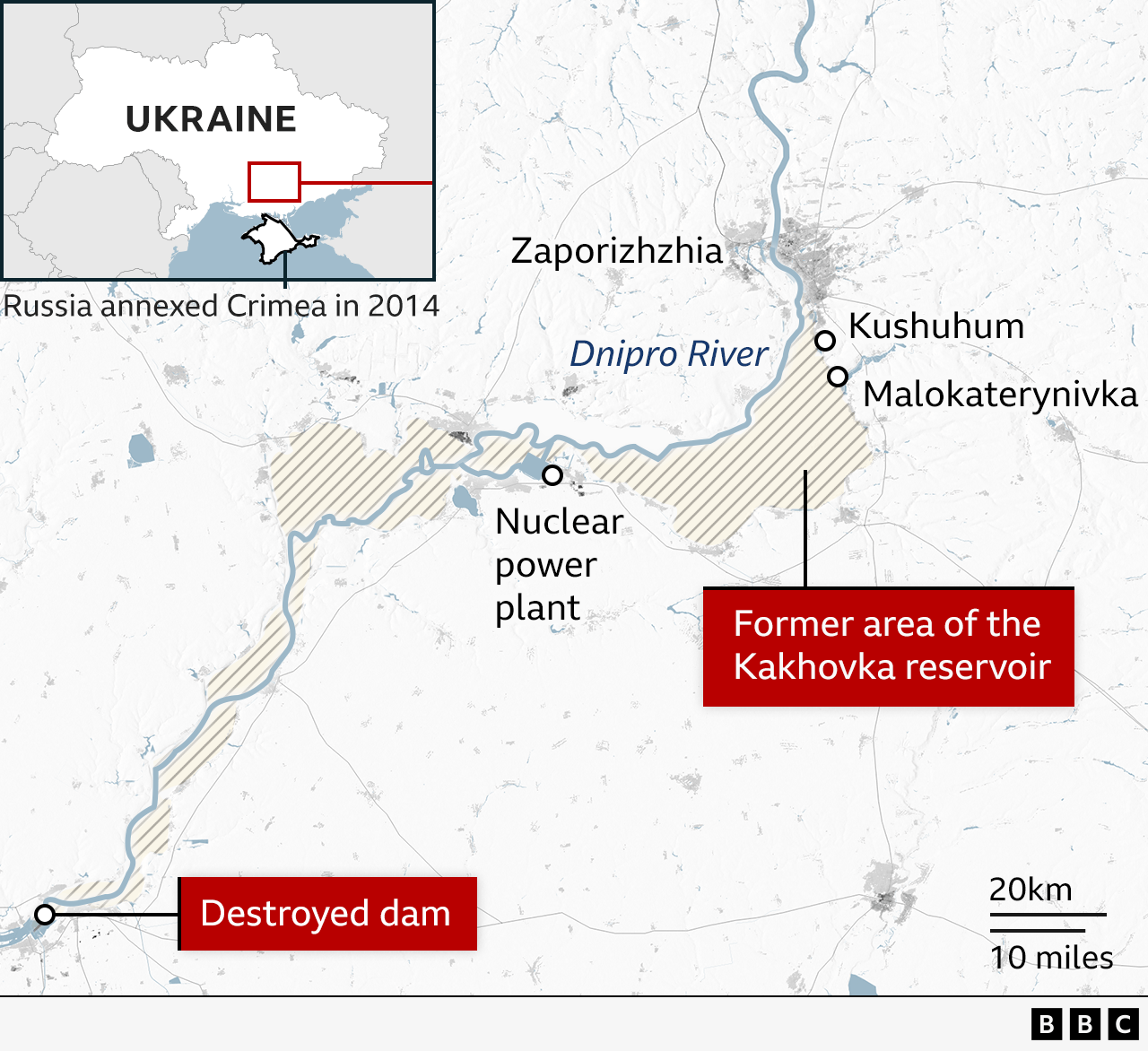
- Published12 February
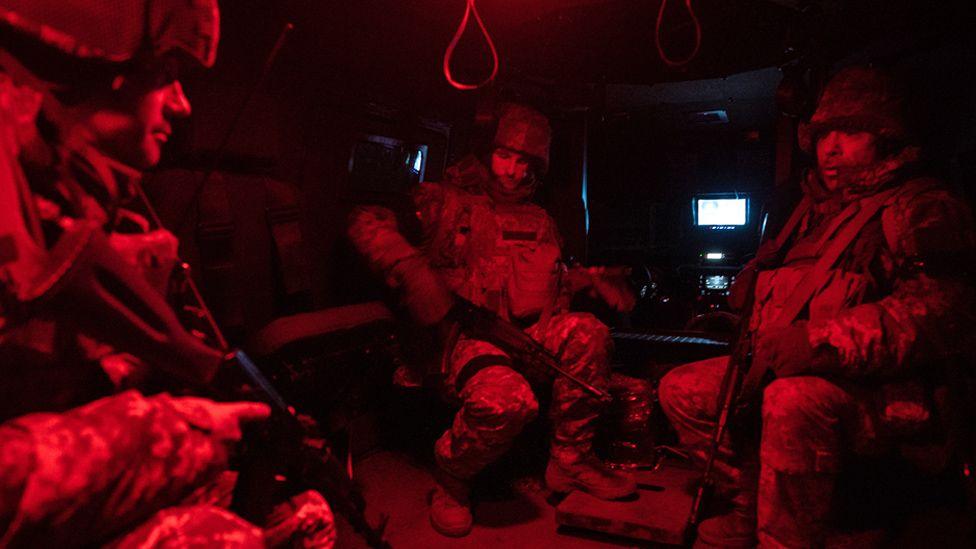
- Published12 February
